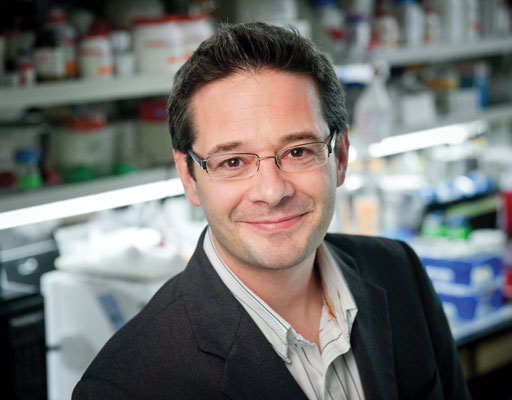In our Winter 2016 issue of The Grey Matters, we featured an interview with Professor Richard Gilbertson, our Chair of our new Biomedical Scientific Advisory Board (Biomed SAB), who joined the Cancer Centre at Cambridge University from St Jude Children’s Research Hospital in the US. You can read the full interview below.
What attracted you to the Cambridge Cancer Centre at Cambridge University?
The brains. The density of intellectual capacity and the depth and breadth of science ongoing across Cambridge is truly stunning. Having worked for 15 years in the US and served on many external advisory boards, Cambridge is the most impressive scientific environment I have encountered. One really feels that anything is possible here and we will make a difference for patients.
What was the highlight of your career at St Jude Research Hospital?
I served as the Director of the National Cancer Institute (NCI) Comprehensive Cancer Centre at St. Jude Children’s Research Hospital – the only US NCI Cancer Centre dedicated solely to Children. The Centre spanned 19 departments and 220 faculty working in the laboratory and clinic to advance cures and find means of preventing cancer in children.
Every five years we have to compete for our Cancer Centre Status with the NCI. At the end of this process in 2013, we were re-designated as an NCI-Comprehensive Cancer Centre with a score of ‘Exceptional’ – the highest score awarded by the NCI.
Tell us about your role at the Cambridge Centre…
I serve as Li Ka Shing Chair of Oncology, Head of the Department of Oncology and Director of the Cambridge Cancer Centre – one of only three CRUK Major Centres in the UK. I am working with the faculty to develop a new strategy that leverages all the great science and clinical care ongoing in Cambridge to ensure that we identify brand new cures and means of preventing cancer for all patients, of all ages, wherever they live.
Discoveries made in Cambridge can and should be shared with the world to move closer to the day that no one dies of cancer, anywhere. This is our mission. My own research lab studies the origins of cancer, particularly childhood brain tumours, and is seeking to develop completely new treatments of these devastating tumours.
What plans do you have for shaping the Cambridge Cancer Centre?
I have been in post six months but we have been busy! We had already generated a new 12 program structure that engages over 600 doctors and scientists and spans all the hospitals, institutes and departments in Cambridge. The structure also includes an exciting new onco-innovation effort that engages our new neighbours and research partners in the pharmaceutical industry as well as in physics, chemistry, engineering, maths and even astrophysics. These great minds are now working together to solve the problem of cancer and are defining a new roadmap for cancer science in Cambridge for the next five years.
Your lab work is focussed on understanding the link between normal development and the origins of cancer, particularly brain tumours. How will these findings shape the future of brain tumour research?
By understanding the origins of cancers we can start to build very accurate models of the disease in the lab. Using this information we are then armed to develop new treatments that target the processes it goes through.
How does the next five to ten years of brain tumour research look to you?
There are four key areas where we should see developments; repurposing (where we take drugs used for other cancers or diseases and use them to treat brain tumours), developing targeted treatments, immunotherapy (which uses the body’s immune system to fight cancer), and targeting the healthy cells and tissues that surround and support the tumour.
These great minds are now working together to solve the problem of cancer and are defining a new roadmap for cancer science in Cambridge for the next five years.
Professor Richard Gilbertson
